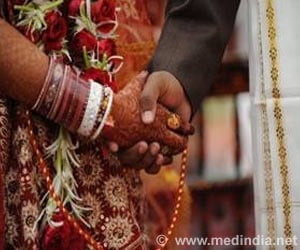Research shows lifelong singles have lower life satisfaction and different personality traits compared to partnered individuals, highlighting the need for tailored support networks.

‘Lifelong singles tend to score lower on extraversion, conscientiousness, and openness, with older singles growing happier with age. #personality #lifesatisfaction’





“When there are differences, they might be especially important in elderly people who face more health issues and financial issues,” said Julia Stern, one of the lead authors and a senior researcher at the University of Bremen in Germany, in an interview with APS. “They need more help, and the help is usually the partner.” Personality Traits and Life Satisfaction in Lifelong Singles
The Big Five personality traits (conscientiousness, extraversion, agreeableness, neuroticism, and openness to experience) and life satisfaction scores were used by Stern and colleagues to compare solitary and paired persons. Using a survey of over 77,000 Europeans over 50, the study was the first to examine individuals who had never been in a relationship and to explore across cultural boundaries.Compared to partnered, the results showed that lifelong singles have lower life satisfaction levels and are less extroverted, conscientious, and receptive to new experiences.
Previous studies used different definitions of being single, sometimes considering only current status and other times drawing the line at having never married or at never living with a partner. But people who have been in a serious relationship in the past—even if it has ended—might have different personality traits than those who have never been that committed.
To investigate this, Stern and colleagues grouped respondents by the different definitions: currently partnered, never living with a partner, never married, or never being in any long-term relationship.
Advertisement
Although this study cannot definitively decipher if personality differences are due to selection—people with certain personality types may be more likely to start relationships—or socialization—long-term relationships could change personalities—the evidence points to the former.
“It’s more likely you have these selection effects: For example, people who are more extraverted are more likely to enter a relationship,” Stern said. But she warned that the results are average effects and not necessarily descriptive of everyone; of course, there are single extroverts and introverts in committed relationships.
For singles, living in a society where marriage is the expectation may affect their life satisfaction. Because the large sample included people from 27 European countries, the researchers were able to ask whether there were any cultural differences.
Cultural and Demographic Factors Influencing Life Satisfaction in Lifelong Singles
In countries with higher marriage rates (such as southern European countries), singlehood resulted in even lower life satisfaction scores, but the effects were small. The religiosity of the country did not seem to matter, however.When comparing across gender and age, single women scored higher on life satisfaction than single men and older people tended to be happier with their singlehood status than middle-aged singles. Stern speculated that, with the era of their peers getting married and starting families behind them, older singles may accept their circumstances and be happier.
Singles may grow happier with age, but their lower scores compared to partnered people are still worrying. Previous research has shown life satisfaction and particular personality traits (including extraversion and conscientiousness) can predict health and mortality, emphasizing the need to find ways to promote the well-being of older singles.
“There are differences between people who stay single their entire lives and people who get partnered, and for me, this means that we have to take extra care of these people,” Stern said.
She suggested developing new kinds of programs to prevent loneliness that considers these personality traits and help older singles meet like-minded people. “If they have people who care for them or look out for them regularly, this might help.”
Reference:
- Differences Between Lifelong Singles and Ever-Partnered Individuals in Big Five Personality Traits and Life Satisfaction- (https:journals.sagepub.com/doi/10.1177/09567976241286865)










